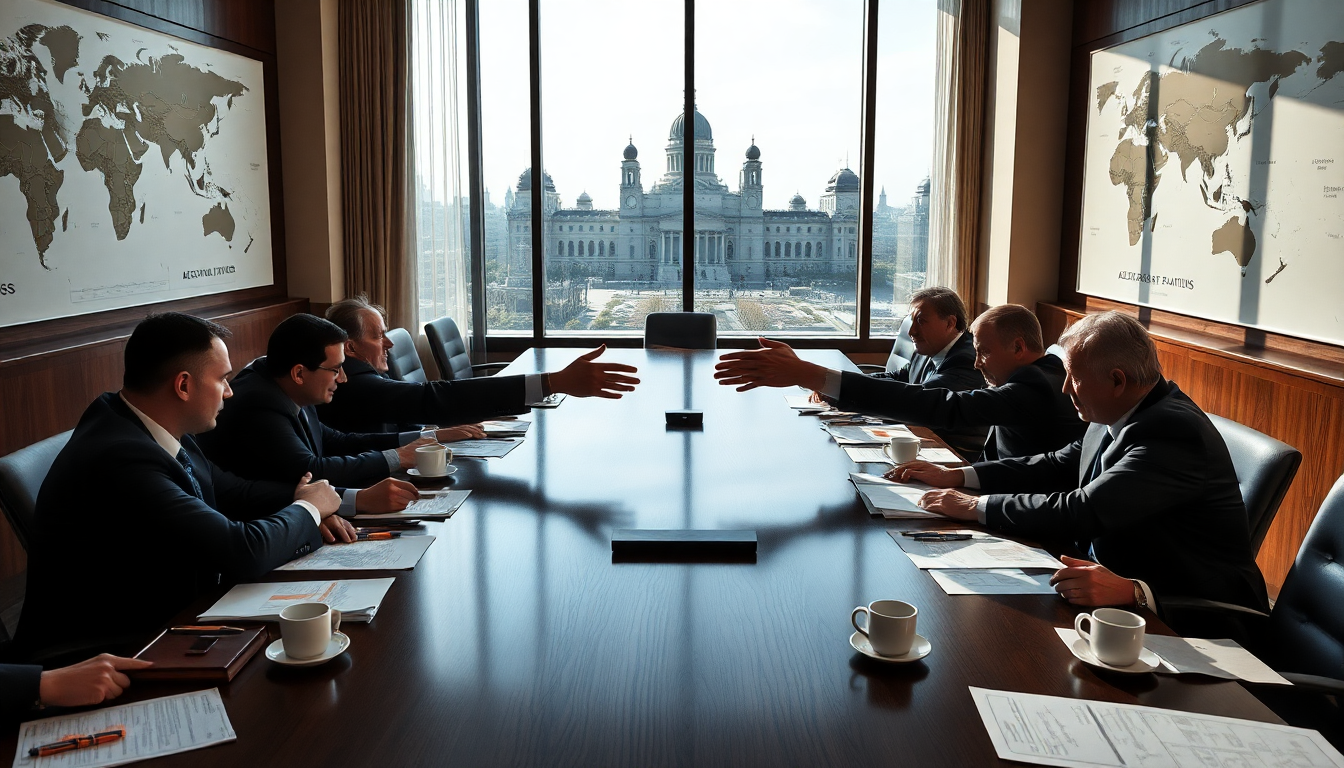Table of Contents
International relations are like a game of chess—constantly evolving with every move made by key political players. Recently, U.S. President Donald Trump shared some intriguing insights about NATO and his relationship with Russian President Vladimir Putin. With tensions rising in Eastern Europe, understanding these dynamics is crucial for grasping what it might mean for global security and diplomacy.
So, what’s really going on?
NATO’s Resurgence: A New Chapter
In a surprising twist, President Trump has acknowledged that NATO is changing, declaring the alliance is no longer “obsolete.” This statement comes as member countries are stepping up to meet their financial commitments.
Why does this matter? It shows a growing recognition among NATO allies of how vital collective security is in today’s shifting geopolitical landscape.
Trump’s recent interview with the BBC signifies a shift from his earlier criticisms of NATO.
He mentioned that the alliance is doing “much better” and expressed backing for collective defense—the very foundation on which NATO was built. This newfound optimism follows NATO Secretary-General Mark Rutte’s recent visit to Washington, where he emphasized the alliance’s critical role in maintaining global stability, especially in light of ongoing tensions with Russia.
But what does this mean for Europe?
Additionally, Trump’s allowance for NATO allies to finance the purchase of U.S. military equipment, like Patriot missile systems for Ukraine, signals a commitment to strengthening the alliance’s defense capabilities. This decision is seen as a crucial move to support Ukraine in its ongoing conflict with Russia, showcasing a shift towards a more unified and proactive NATO.
Are we witnessing a turning point in the alliance’s approach?
Trump’s Complex Relationship with Putin
Despite his recent praise for NATO, Trump has expressed some disappointment in President Putin. He stated, “I’m disappointed in him, but I’m not done with him,” revealing a complicated relationship filled with frustration over Russia’s actions towards Ukraine.
This sentiment reflects the delicate balance Trump is trying to strike: holding Putin accountable while keeping diplomatic doors open. How sustainable is this approach?
In recent days, Trump’s rhetoric has escalated, as he threatened to impose 100 percent tariffs on Russian goods if the conflict in Ukraine doesn’t come to a halt soon. This ultimatum underscores a growing impatience with Putin’s actions, especially as missile strikes continue to impact Ukrainian cities. It’s clear that the stakes are high.
Trump’s criticism of French President Emmanuel Macron also sheds light on the nuances of international negotiations. He dismissed Macron’s claims of facilitating a ceasefire between Israel and Iran, pointing to the ongoing missile attacks in Ukraine as a more pressing issue. This highlights how seriously the U.S. administration views the situation in Eastern Europe and the need for cohesive international action. What’s the next move?
Looking Ahead: The Future of International Alliances
The evolving dynamics of NATO and U.S.-Russia relations present both challenges and opportunities for global diplomacy. As countries navigate these intricate relationships, the potential for collaboration or conflict remains up in the air. The real question is: How effectively can leaders engage in dialogue while addressing the underlying issues that threaten stability?
In the coming months, the spotlight will likely be on fortifying NATO’s collective defense and ensuring member countries align in their strategic objectives. The international community will be watching closely to see how Trump’s administration continues to interact with Russia, especially in the context of ongoing conflicts. Will we see a more cohesive strategy?
As we delve into these developments, it becomes evident that the current geopolitical landscape is more fluid than ever. Understanding the motivations and actions of key players will be essential for anticipating future moves in this complex arena. Are you ready to keep an eye on what unfolds next?





